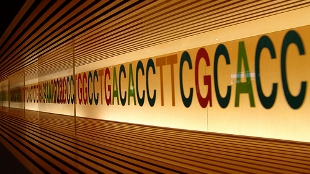 FLICKR, MJ/TR
FLICKR, MJ/TR
New research published today (February 17) in Science suggests that our genomes, even those from healthy people, may harbor a surprising number of missing and mutated genes, reports ScienceNOW. Using 185 individual genome sequences from the 1000 Genomes Project, an international team of researchers identified 2,951 mutations that, rather than being sequencing errors, might instead be “loss-of-function” mutations that cripple their genes.
The researchers culled 1,285 mutations from this pool using stringent filtering to identify the mutations most likely to result in loss of function. Of these, 100 are found frequently in European genomes. On average, a person will have about 20 genes that are completely “lost”—meaning that both alleles have inactivating mutations. Given the apparent high rate of such mutations, the researchers write that ...



















